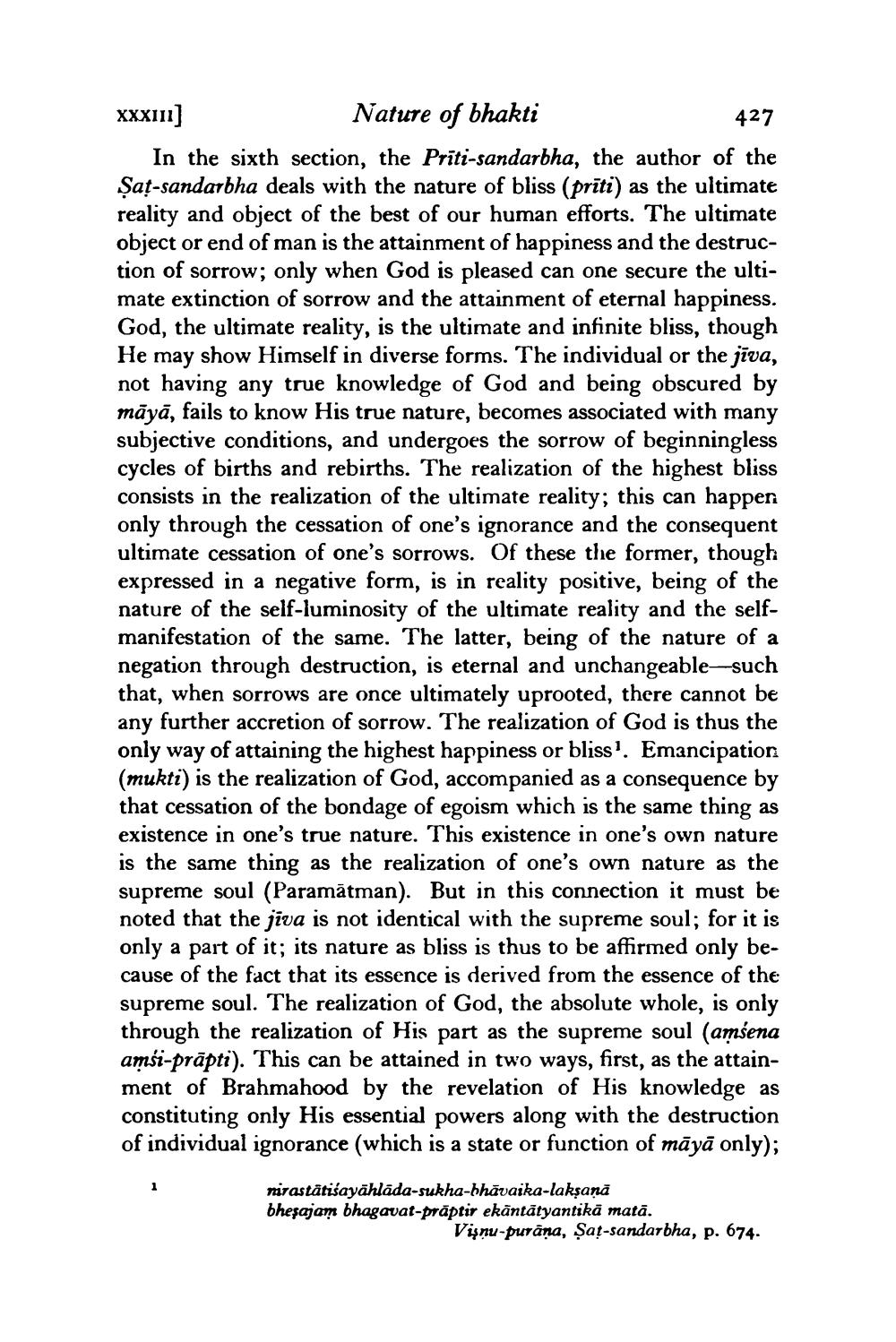________________
XXXIII] Nature of bhakti
427 In the sixth section, the Priti-sandarbha, the author of the Şaț-sandarbha deals with the nature of bliss (prīti) as the ultimate reality and object of the best of our human efforts. The ultimate object or end of man is the attainment of happiness and the destruction of sorrow; only when God is pleased can one secure the ultimate extinction of sorrow and the attainment of eternal happiness. God, the ultimate reality, is the ultimate and infinite bliss, though He may show Himself in diverse forms. The individual or the jīva, not having any true knowledge of God and being obscured by māyā, fails to know His true nature, becomes associated with many subjective conditions, and undergoes the sorrow of beginningless cycles of births and rebirths. The realization of the highest bliss consists in the realization of the ultimate reality; this can happen only through the cessation of one's ignorance and the consequent ultimate cessation of one's sorrows. Of these the former, though expressed in a negative form, is in reality positive, being of the nature of the self-luminosity of the ultimate reality and the selfmanifestation of the same. The latter, being of the nature of a negation through destruction, is eternal and unchangeable-such that, when sorrows are once ultimately uprooted, there cannot be any further accretion of sorrow. The realization of God is thus the only way of attaining the highest happiness or bliss'. Emancipation (mukti) is the realization of God, accompanied as a consequence by that cessation of the bondage of egoism which is the same thing as existence in one's true nature. This existence in one's own nature is the same thing as the realization of one's own nature as the supreme soul (Paramātman). But in this connection it must be noted that the jiva is not identical with the supreme soul; for it is only a part of it; its nature as bliss is thus to be affirmed only because of the fact that its essence is derived from the essence of the supreme soul. The realization of God, the absolute whole, is only through the realization of His part as the supreme soul (amšena amsi-prāpti). This can be attained in two ways, first, as the attainment of Brahmahood by the revelation of His knowledge as constituting only His essential powers along with the destruction of individual ignorance (which is a state or function of māyā only);
nirastätiśayāhlāda-sukha-bhāvaika-laksana bhesajam bhagavat-prāptir ekāntātyantikā matā.
Vişnu-purana, Șat-sandarbha, p. 674.




